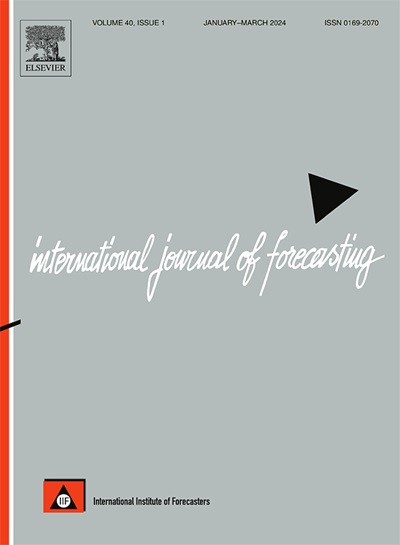Forecast value added in demand planning
IF 7.1
2区 经济学
Q1 ECONOMICS
引用次数: 0
Abstract
Forecast value added (FVA) analysis is commonly used to measure the improved accuracy and bias achieved by judgmentally modifying system forecasts. Assessing the factors that prompt such adjustments, and their effect on forecast performance, is important in demand forecasting and planning. To address these issues, we collected the publicly available data on around 147,000 forecasts from six studies and analysed them using a common framework. Adjustments typically led to improvements in bias and accuracy for only just over half of stock keeping units (SKUs), though there was variation across datasets. Positive adjustments were confirmed as more likely to worsen performance. Negative adjustments typically led to improvements, particularly when they were large. The evidence that forecasters made effective use of relevant information not available to the algorithm was weak. Instead, they appeared to respond to irrelevant cues, or those of less diagnostic value. The key question is how organizations can improve on their current forecasting processes to achieve greater forecast value added. For example, a debiasing procedure applied to adjusted forecasts proved effective at improving forecast performance.
在需求规划中预测附加值
预测增加值(FVA)分析通常用于衡量通过判断性地修改系统预测而提高的准确性和偏差。在需求预测和规划中,评估促使这种调整的因素及其对预测性能的影响是很重要的。为了解决这些问题,我们从六项研究中收集了大约147,000个预测的公开数据,并使用一个共同框架对它们进行了分析。调整通常只会导致超过一半的库存单位(sku)的偏差和准确性的改善,尽管数据集之间存在差异。积极的调整被证实更有可能恶化业绩。负的调整通常会导致改善,尤其是当它们很大的时候。预测者有效利用了算法无法获得的相关信息的证据很弱。相反,他们似乎对无关的线索或诊断价值较低的线索做出反应。关键问题是组织如何改进其当前的预测过程,以实现更大的预测附加值。例如,应用于调整后预测的去偏程序被证明在提高预测性能方面是有效的。
本文章由计算机程序翻译,如有差异,请以英文原文为准。
求助全文
约1分钟内获得全文
求助全文
来源期刊

International Journal of Forecasting
Multiple-
CiteScore
17.10
自引率
11.40%
发文量
189
审稿时长
77 days
期刊介绍:
The International Journal of Forecasting is a leading journal in its field that publishes high quality refereed papers. It aims to bridge the gap between theory and practice, making forecasting useful and relevant for decision and policy makers. The journal places strong emphasis on empirical studies, evaluation activities, implementation research, and improving the practice of forecasting. It welcomes various points of view and encourages debate to find solutions to field-related problems. The journal is the official publication of the International Institute of Forecasters (IIF) and is indexed in Sociological Abstracts, Journal of Economic Literature, Statistical Theory and Method Abstracts, INSPEC, Current Contents, UMI Data Courier, RePEc, Academic Journal Guide, CIS, IAOR, and Social Sciences Citation Index.
 求助内容:
求助内容: 应助结果提醒方式:
应助结果提醒方式:


